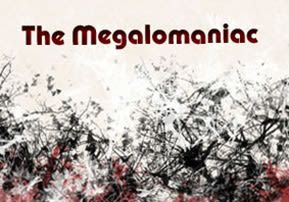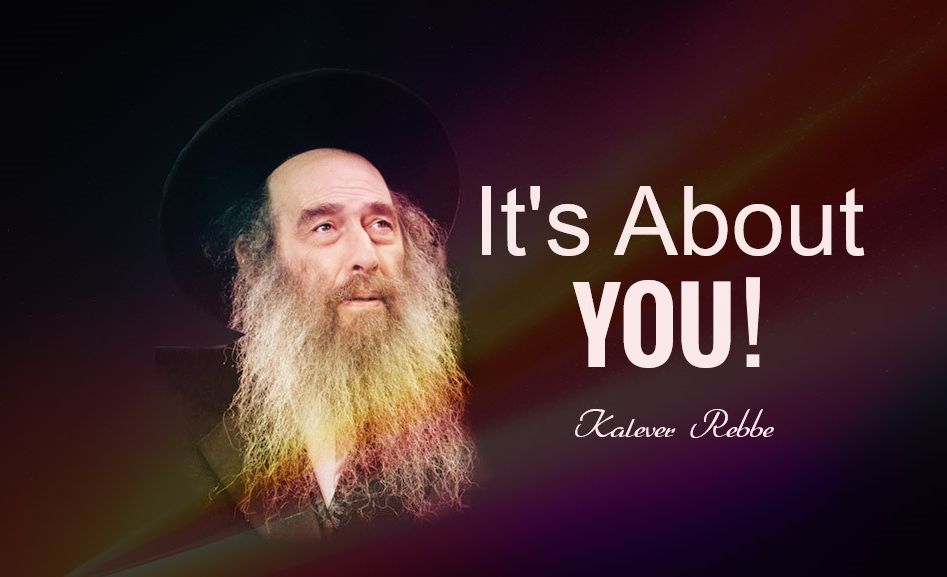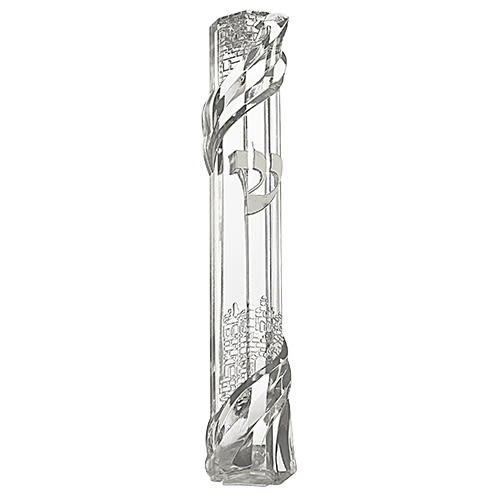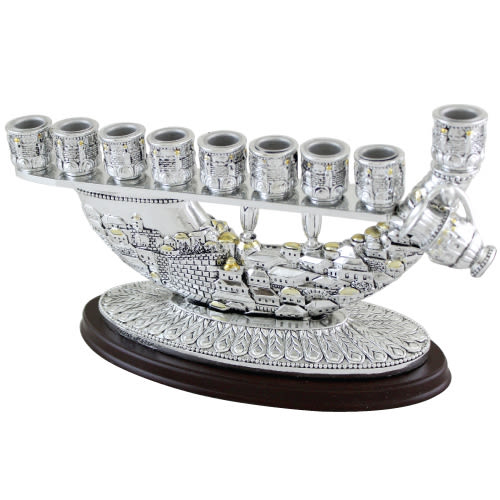
The Megalomaniac
With emuna, we also don’t have to be afraid of tyrannical megalomaniacs, especially those who tell us where we can build in the Land of Israel or where we can’t.

My beloved rabbi and spiritual guide Rav Shalom Arush tells a joke about megalomaniacs:
The Minister of Health takes the Prime Minister on a tour of the nation’s mental health facilities. They visit a hospital for the mentally ill, and they go into a room with three megalomaniacs. Two of them are arguing back and forth, each claiming to be the Moshiach. The third sits quietly in an armchair, and is engrossed in the newspaper.
The PM wants to get to know his constituents, so he turns to the third gentleman and says, “I see that you’re not involved in your friends’ argument. You seem to be completely normal. Tell me, which of the other two is really Moshiach?”
“Neither one,” answers the third patient.
“How do you know?” asks the Prime Minister.
“Because I’m G-d!” the patient answers.
The joke isn’t over yet. The PM walks in the next room where three other patients are sitting. One of the patients turns to the PM, and asks, “Who are you?”
The PM answers, “I’m Prime Minister!”
The patient hushes the PM and says, “You better not let anyone hear you say such a thing! I said that I was PM and they threw me in here!”
Logic says that you wouldn’t call the President or Prime Minister a megalomaniac, since he really is the President or the Prime Minister. Yet, if he thinks he rules the entire world, he certainly deserves the “coveted” title. Megalomania is the common denominator of history’s notorious tyrants – from Pharaoh to Sadaam Hussein to several contemporary stars on the world’s current political stage, both east and west.
Megalomania comes from the Greek word megalo, meaning large, and mania, which means a craziness or abnormal behavior. Practically, we are all familiar with megalomania in its better-known vernacular label, delusions of grandeur. These delusions are a person’s obsessions with wealth, power, fame, or status. A megalomaniac craves grandiosity, extravagance, social influence, political power, and tons of recognition and publicity. We see this all the time, unfortunately. I get periodic emails from three or four different people who claim to be Moshiach.
Rav Shalom Arush says that a person becomes a megalomaniac when he is dissatisfied with what he has in life. Dissatisfaction with one’s lot in life is a prime expression of lack of emuna, because a person with emuna is satisfied with whatever Hashem gives him and profusely thanks Hashem. In wanting more than he has, the megalomaniac shows that he doesn’t appreciate his eyesight, his hearing, his heart and lungs, the air he breathes or any one of a trillion more current blessings that he takes for granted. Therefore, had he developed emuna and a sense of gratitude to Hashem, he would have never become a megalomaniac in the first place.
In fact, arrogance – in that it’s a form of megalomania – is also an emotional sickness. Rebbe Nachman of Breslev says emphatically that arrogance leads to lust and lust makes a person crazy.
“Happy with his lot” means that a person has complete emuna. He believes that Hashem created him with his profile of strengths and weaknesses so that he can accomplish his own particular task in this world. He’s not trying to be someone else, because he knows that someone else has a different task and a different soul correction to make. For example, the plumber and the carpenter aren’t jealous of each other’s tools because each has a different job to do.
With emuna, we don’t lose heart because of our weaknesses. We know that Hashem loves us the way we are, because Hashem created us with our individual strengths and weaknesses that enable us to do our tikkun, our soul correction in this world. Therefore, the minute a person entertains any kind of fantasy about being someone else, it shows that his emuna needs reinforcing. That doesn’t mean that we don’t work hard to make the very best of our potential. We should all strive for excellence in our respective fields. But meanwhile, we should realize that both our successes and our failures come from Hashem and be happy about wherever we are in the present.
With emuna, we also don’t have to be afraid of tyrannical megalomaniacs, especially those who tell us where we can build in the Land of Israel or where we can’t. The Torah clearly delineates the borders of Israel. The Jewish people aren’t allowed to make conquests into the land of Lot’s grandchildren (modern-day Jordanian territory) or into Edom (south Jordan and western Saudi Arabia), for that is the land of Esau’s offspring. Conversely, we don’t have to listen to anyone that tells us anything contrary to the Torah, especially when it robs us of our G-d-given inheritance.
Hold on, the war’s not over; a megalomaniac cannot take “no” for an answer. One such megalomaniac is applying massive pressure on Israel’s elected leaders to relinquish our birthright to Jerusalem and Hevron, to Judea and Samaria. Our elected leaders have a miserable track record in crumbling to foreign pressure. What makes them so weak? Lack of emuna; when they think they’re dependent on foreign dollars, they become subservient to the perceived source of their dependance.
Only emuna gives us the strength to say “no” to a megalomaniac. Only emuna gives us the right to the Land of Israel and Jerusalem. May Hashem help us to strengthen our emuna, amen.

Above image: The Jewish-owned Shepherd Hotel complex in East Jerusalem. Mounting international pressure is preventing the development of a Jewish neighborhood there. Photo courtesy of Emuna Outreach.











Tell us what you think!
Thank you for your comment!
It will be published after approval by the Editor.